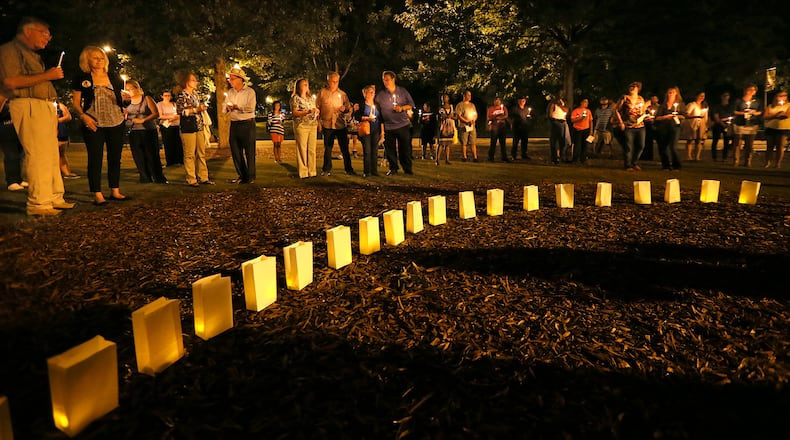A senior at the Gwinnett School of Math, Science, and Technology, Shawn Zhu writes today about how a suicide at his top-ranked high school calls attention to the mental health pressures overwhelming students today.
Zhu plans to attend Brown University in the fall with a tentative major in mathematics. (An Ivy League school, Brown admitted 6.6 percent of its applicants this year.)
Zhu’s essay is the second I’ve received from a language and composition class at the Gwinnett School of Math, Science, and Technology, which has been named Georgia’s best high school in national rankings. I encourage more teachers to urge students to write about the challenges facing schools and communities today.
By Shawn Zhu
When the news of the suicide of a senior class member recently broke, my school went into a state of shock. The once-jittery hallways were silent, and class after class became full of stares of defeat or disbelief. And yet, the saddest part of was how inevitable it felt.
This catastrophe didn’t spring out of nowhere; it occurred during one of the most tense times of the year: college decisions season. And tragedies like this aren’t as uncommon as you might think.
According to a report by the National Center for Injury Prevention and Control, suicide is the second leading cause of death among students from age 15 to 24, with 5,723 deaths in 2016 — a number that has been steadily increasing over the past five years. And while addressing gun laws and limiting access to the means of suicide is an important preventative step, the bigger issue beneath the surface is one of adolescent mental health.
A recent Pew Research study showed that 70% of teens consider anxiety and depression a major issue among their peers. The primary reason? Unsurprisingly, academics.
With 61% of students reporting high levels of stress related to grades (the greatest stressor by 37%), the correlation is quite clear.
The issue does not lie in the grades themselves, but rather in how they’re treated. High school is meant to be a place of learning, a place of preparation for the exploration and passion searching that will occur after graduation. When the focus shifts from field exploration to bolstering transcripts and college applications, the consequences can be quite dire. Look no further than the 2015 suicide cluster at Palo Alto High School, one of the most prestigious (and pressured-filled) high schools in America.
In a New York Times article on the cluster, Stanford education expert Denise Pope attributed the catastrophe to intense pressure for "only the best" in grades, test scores, and colleges. And when those expectations weren't reached, disappointment, depression, and suicide followed. In addition, the pressure of making it to higher level universities can often mean that instead of studying and improving, some families turn to less honest means to try to secure their spot.
In an AJC article detailing the recent college cheating scandal on this blog, journalist Maureen Downey details how parents spent $25 million to fake test reports, grades, and athletic profiles, all in the name of obtaining a spot in a selective college for their children. The fact that parents are willing to go to such extreme and unethical means demonstrates exactly how twisted the trajectory of grades has become: moving away from a meaningful indicator of learning and toward a number to entice admissions officers.
So then, what can we do to combat rising tides of stress and anxiety today? Maybe high schools can start teaching — whether through counseling or electives — often misunderstood and stressed-for topics such as the college selection and admission process. Schools can engage in practices such as not revealing class rank or individual grades to decrease possible grade-related bullying or stress. Possibly creating a few pass/fail classes can help decrease the stress and allow students to focus on learning instead.
Truthfully, there is no easy solution to the educational pressure issue. But with the growing information overload and ease of comparison that is the digital age, it is more important than ever to start trying to find ways to alleviate these academic stresses. Stresses that have taken too many lives already.
About the Author
The Latest
Featured




